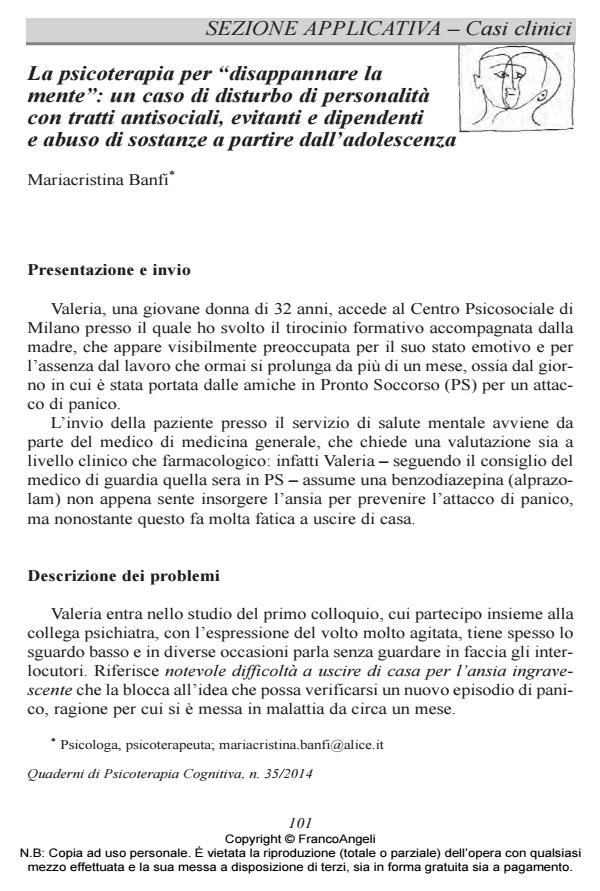Psychotherapy that "clears the mind": a clinical case of Personality Disorder with antisocial, avoidant and dependent traits and drug abuse from teenage years
Journal title QUADERNI DI PSICOTERAPIA COGNITIVA
Author/s Mariacristina Banfi
Publishing Year 2014 Issue 2014/35
Language Italian Pages 18 P. 101-118 File size 64 KB
DOI 10.3280/QPC2014-035007
DOI is like a bar code for intellectual property: to have more infomation
click here
Below, you can see the article first page
If you want to buy this article in PDF format, you can do it, following the instructions to buy download credits

FrancoAngeli is member of Publishers International Linking Association, Inc (PILA), a not-for-profit association which run the CrossRef service enabling links to and from online scholarly content.
Valeria is a 32 years old young woman, presenting a Personality Disorder with antisocial, avoidant and dependent traits as well drug abuse (cannabis, ecstasy and cocaine) from the age of sixteen. At the beginning of psychotherapy, lasted for 48 sessions over two years, the patient presented a defective and unloving self- representation and the tendency to be involved in abusing affective-sexual relations. Through metacognitive-interpersonal psychotherapy, based on a pathetic and cooperative relationship, emphatic validation and some strategic self-disclosures, the patient improved her highly dysfunctional metacognition: she learned to be aware of her states of mind (sensations, emotions, feelings, wishes and expectations) and to communicate them to others. As consequence of this metacognitive improvement, Valeria was able, for the first time in her life, to start an affective relationship characterized by mutuality and sharing.
Keywords: Personality disorders, drug abuse, metacognitive-interpersonal psychotherapy, cooperative relationship, meta-representative function enhancement.
Mariacristina Banfi, La psicoterapia per "disappannare la mente": un caso di disturbo di personalità con tratti antisociali, evitanti e dipendenti e abuso di sostanze a partire dall’adolescenza in "QUADERNI DI PSICOTERAPIA COGNITIVA" 35/2014, pp 101-118, DOI: 10.3280/QPC2014-035007